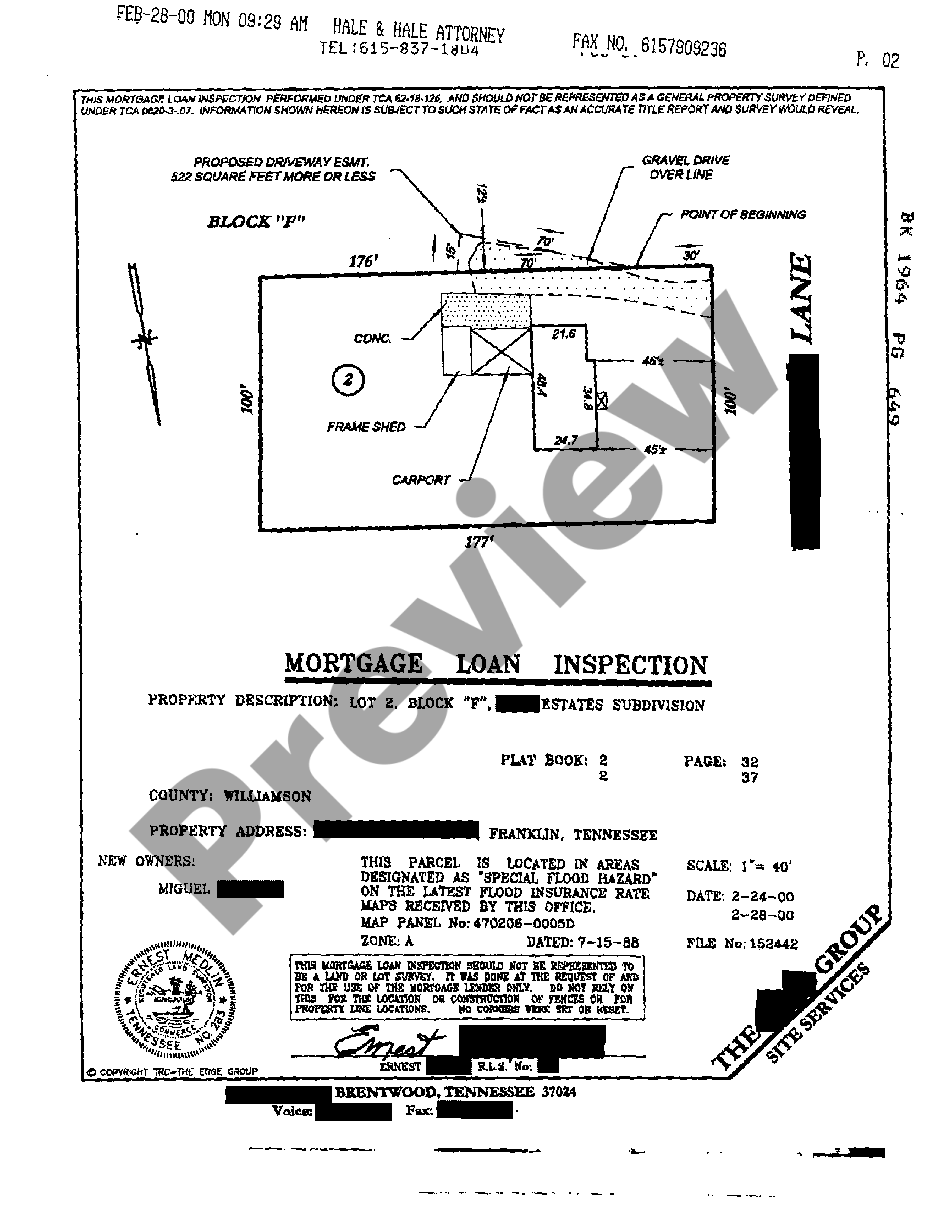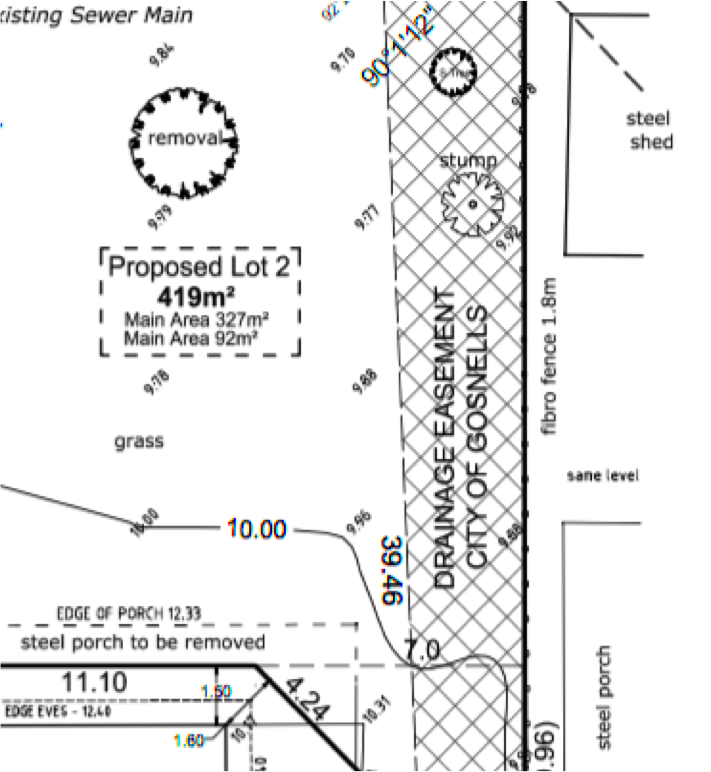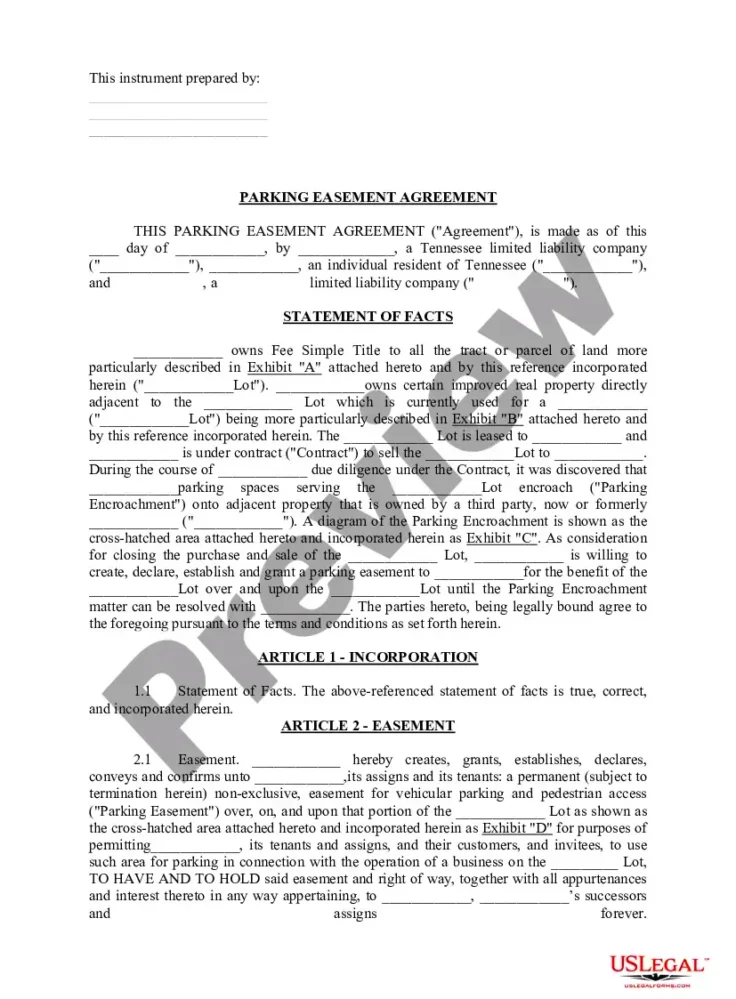Easement Laws in Tennessee: What Property Owners Should Know
As a property owner you may come across easements, which are legal permissions allowing others to use a portion of your land. The laws surrounding easements in Tennessee can be quite intricate and it’s essential for every property owner to have a good understanding of them. Easements can affect how land is utilized and may impact your privacy and property value. I recall an instance when my uncle had to deal with an easement matter on his farm. It was a valuable lesson that highlighted the significance of comprehending these laws thoroughly. In Tennessee easements are regulated by statutes and can influence various aspects ranging from access rights to utility installations.
Types of Easements in Tennessee

In Tennessee there are different types of easements, each with its own specific purpose. Lets take a look at the key varieties you may come across.
- Appurtenant Easement: This is linked to a particular piece of land and benefits the property, not the owner. For instance, if your property has an easement allowing a neighbor to cross your land to reach their property, it’s an appurtenant easement.
- In Gross Easement: This easement benefits an individual or entity rather than a specific piece of land. Utility companies often use these for installing and maintaining infrastructure.
- Prescriptive Easement: Acquired through continuous, open, and adverse use of the property over a period. Think of a path that people have used for years, which could eventually become a prescriptive easement.
- Express Easement: Created by a formal agreement or deed between property owners. This is the most straightforward type, where both parties clearly define the terms.
Different types of easements come with their own consequences and being aware of them can help avoid conflicts down the road. When my neighbor decided to put in a water line we had to have a conversation about the kind of easement required to steer clear of any legal troubles.
How Easements Are Created

In Tennessee there are different ways to create easements each needing thoughtful legal and practical considerations. Here’s a breakdown of how you can set one up:
- Written Agreement: Most easements are created through a written agreement between the parties involved. This document specifies the easement’s scope, duration, and any responsibilities. A well-drafted agreement can prevent misunderstandings and conflicts.
- Deed: Easements can be granted through a deed, which is a formal legal document that transfers property rights. This is often used for appurtenant easements where specific property rights are transferred.
- Prescription: As mentioned earlier, an easement can be acquired by continuous and uninterrupted use of another’s property. However, this method can be tricky and often requires proving the use was adverse and open.
- Necessity: Sometimes, easements are established out of necessity, such as when a property is landlocked and requires access through another’s land.
Setting up an easement typically requires the expertise of professionals to ensure everything is handled correctly. I assisted a friend in establishing an easement for their driveway. The process went smoothly thanks to well defined agreements and a mutual understanding of the rights and responsibilities of both parties involved.
Rights and Responsibilities of Easement Holders
Having an easement gives you some privileges, but it also comes with obligations. It’s similar to sharing a living area where everyone must honor each others boundaries. I recall my cousins easement for a driveway passing through a neighbors land. The arrangement had well defined guidelines and grasping these was essential for preserving a positive rapport.
Rights of Easement Holders:
- Access: Easement holders have the right to use the specified part of the property as outlined in the easement agreement. This could be for accessing their own property, utilities, or other purposes.
- Use: They can use the easement area as intended, whether it’s for a pathway, utility line, or other specified use. However, the use must align with what was agreed upon.
Responsibilities of Easement Holders:
- Maintenance: In some cases, easement holders are responsible for maintaining the easement area. This can include keeping the path clear or repairing any damage.
- Respecting Property: They must not cause harm or excessive interference with the property through which the easement runs. This is key to preserving good neighborly relations.
- Adhering to Terms: It’s vital to follow the terms set in the easement agreement. Deviating from these terms can lead to legal disputes.
When it comes to handling an easement good communication and mutual respect can make a big impact. I’ve witnessed how misinterpretations can result in disputes which is why a well defined written agreement can really change the game.
Resolving Disputes Over Easements
Conflicts regarding easements are quite frequent and may stem from misinterpretations, improper use or differing opinions on the conditions. Dealing with these conflicts carefully is crucial to prevent the situation from worsening. I remember an instance when my neighbor and I disagreed about the usage of a driveway. It was a valuable lesson in resolving matters promptly and in a friendly manner.
Steps to Resolve Easement Disputes:
- Open Communication: Start by discussing the issue openly with the other party. Sometimes, a simple conversation can clear up misunderstandings.
- Review the Agreement: Go over the easement agreement to understand the terms and obligations. This can help clarify who is right and what actions need to be taken.
- Seek Mediation: If direct communication doesn’t work, consider mediation. A neutral third party can help negotiate a fair resolution.
- Legal Advice: Consult a lawyer if the dispute is complex or if mediation fails. Legal professionals can provide guidance on how to proceed based on the law.
Dealing with disagreements in a composed and lawful manner can help avoid lasting problems and preserve positive relationships. I’ve come to realize that seeking guidance can be beneficial for resolving conflicts smoothly.
How Easement Laws Affect Property Value
Easements can greatly affect the value of a property often in ways that aren’t immediately apparent. It’s crucial to grasp these impacts whether you’re purchasing, selling or overseeing a property. I once assisted a friend in assessing a property burdened with easements and it truly opened my eyes to how easements can sway worth.
Positive Impacts:
- Improved Access: Easements that provide better access to properties can increase their value. For example, a well-maintained easement can make a landlocked property more desirable.
- Utility Installation: Easements for utilities can add value by ensuring that necessary services like water and electricity are easily accessible.
Negative Impacts:
- Restricted Use: Easements that limit how you can use your property can decrease its value. Buyers might see these restrictions as a drawback.
- Maintenance Costs: Easement holders may be responsible for maintenance, which can be an additional cost that affects property value.
When assessing real estate that has easements it’s crucial to weigh the advantages and disadvantages. In my experience grasping the role of easements in the context of a property can aid in making choices.
Common Examples of Easements in Tennessee
Easements go beyond being terms; they have an impact on how we handle properties in our daily lives. There are many types of easements each with its own function. I’ve witnessed easements being used in unexpected ways based on my experiences. Whether it’s on a countryside farm or a busy city lot knowing about common easement types can assist you in dealing with property issues more efficiently.
Here are some common types of easements you might encounter in Tennessee:
- Right of Way Easement: This is one of the most common easements, allowing access across a property. For example, a neighbor might have the right to use a path on your land to reach their property. It’s crucial for properties that are landlocked or need access to public roads.
- Utility Easement: Utility companies often have easements for placing and maintaining infrastructure such as water lines, power lines, and sewer systems. These are typically found running along the edges of properties and ensure that essential services are delivered efficiently.
- Drainage Easement: This easement allows for the management of water flow across property boundaries. If you’ve ever seen ditches or pipes running through someone’s yard, it’s likely due to a drainage easement, which helps prevent flooding and water damage.
- Access Easement: Sometimes, properties need access to a main road or another part of their land. An access easement grants permission to cross or use a specific area to get to another location, like a driveway through a neighbor’s land.
Grasping these instances can shed light on the impact of easements on your property. Personally, I encountered a situation with a utility easement while putting up a fence. It was crucial to grasp the limits and entitlements at play in that scenario.
Steps to Take If You Need Legal Advice
Navigating easements can be tricky and having legal counsel can really save the day. It’s similar to having a navigator in a challenging labyrinth. I remember assisting a friend who found themselves caught up in a complicated easement issue and the insight a lawyer offered was priceless. Here’s a simple roadmap for seeking assistance when you require it.
Here are some steps to take:
- Identify the Issue: Clearly define what the problem is. Are you dealing with a dispute, creating an easement, or trying to understand your rights? A clear issue helps in finding the right legal expert.
- Gather Documents: Collect all relevant documents, including easement agreements, property deeds, and any correspondence related to the easement. These documents are crucial for your lawyer to review and provide accurate advice.
- Consult a Specialist: Look for a lawyer who specializes in property or real estate law. Easement issues can be nuanced, so having someone with experience in this area can make a significant difference.
- Discuss Your Goals: Be open about what you hope to achieve. Whether it’s resolving a dispute or understanding your rights, clear communication with your lawyer ensures that your goals are met.
- Follow Legal Advice: Once you receive legal advice, follow it carefully. Sometimes, the steps might seem complicated, but they are designed to protect your interests and resolve the issue effectively.
Getting legal help can feel intimidating, but it’s an important part of handling property matters efficiently. I’ve learned that with the support, even tricky situations can be sorted out without a hitch.
FAQ About Easement Laws in Tennessee
Questions regarding easements frequently arise and obtaining clear responses is crucial. Easements can be complex and possessing accurate information can significantly impact the situation. Drawing from my insights and frequently asked questions, I’ve put together a useful FAQ to shed light on aspects of easement laws in Tennessee.
Frequently Asked Questions:
- What is an easement? An easement is a legal right to use a portion of someone else’s property for a specific purpose, like access or utilities. It doesn’t give ownership but allows certain uses as outlined in an agreement.
- How long does an easement last? The duration of an easement depends on the type and terms specified in the agreement. Some are permanent, while others are temporary or subject to conditions.
- Can easements be transferred? Yes, easements can be transferred to new owners if they are appurtenant to the property. However, easements in gross, which benefit individuals or entities, are generally not transferable.
- What happens if I want to end an easement? Ending an easement usually requires mutual agreement between the parties involved. In some cases, you might need to go through legal procedures to modify or terminate an easement.
- What should I do if I have a dispute over an easement? Start by discussing the issue with the other party. If that doesn’t resolve the problem, consider mediation or seek legal advice to address the dispute formally.
This response aims to shed light on the intricacies of easement regulations and assist in resolving common queries. While dealing with easements can be challenging having the information and assistance can make the process smoother.
Conclusion
Grasping the intricacies of easement laws in Tennessee is essential for anyone facing property challenges. Whether you’re an owner a prospective buyer or simply overseeing your land being aware of the various types of easements, your rights and obligations and ways to settle disputes can greatly impact the situation. Easements play a role in property management subtly influencing how land is utilized and enjoyed. I’ve witnessed how communication and legal support can untangle issues and foster positive relationships among neighbors. By staying well informed and taking steps you can navigate these legal waters smoothly ensuring that your property matters are handled efficiently. Embrace this knowledge and you’ll discover that tackling easements doesn’t have to be an overwhelming experience.


